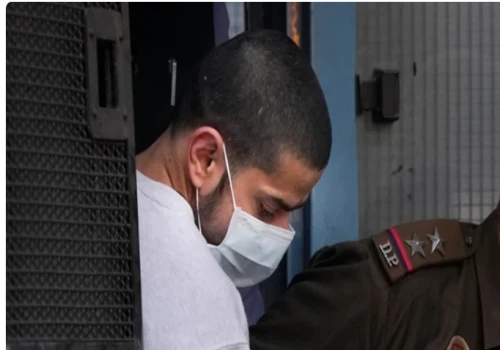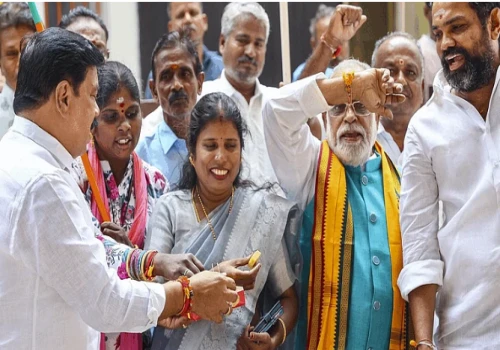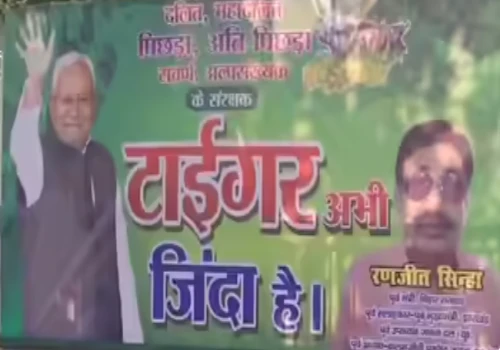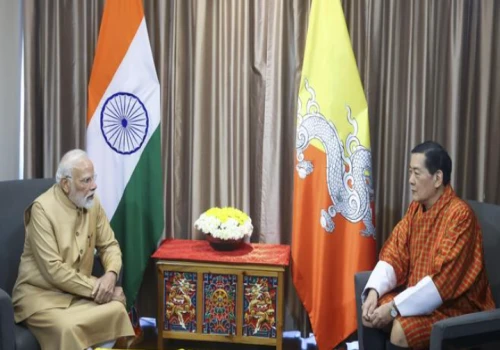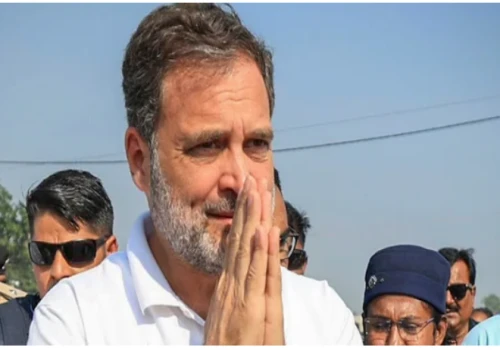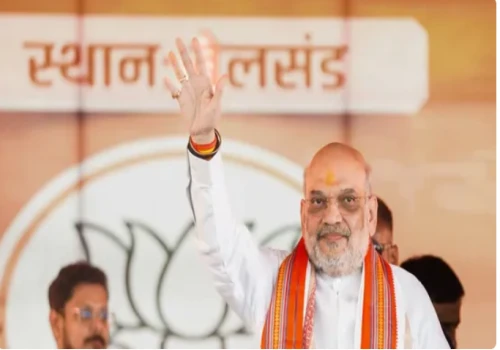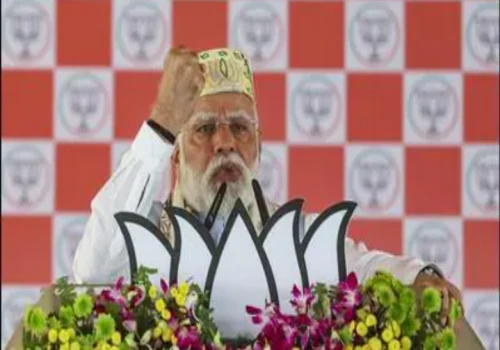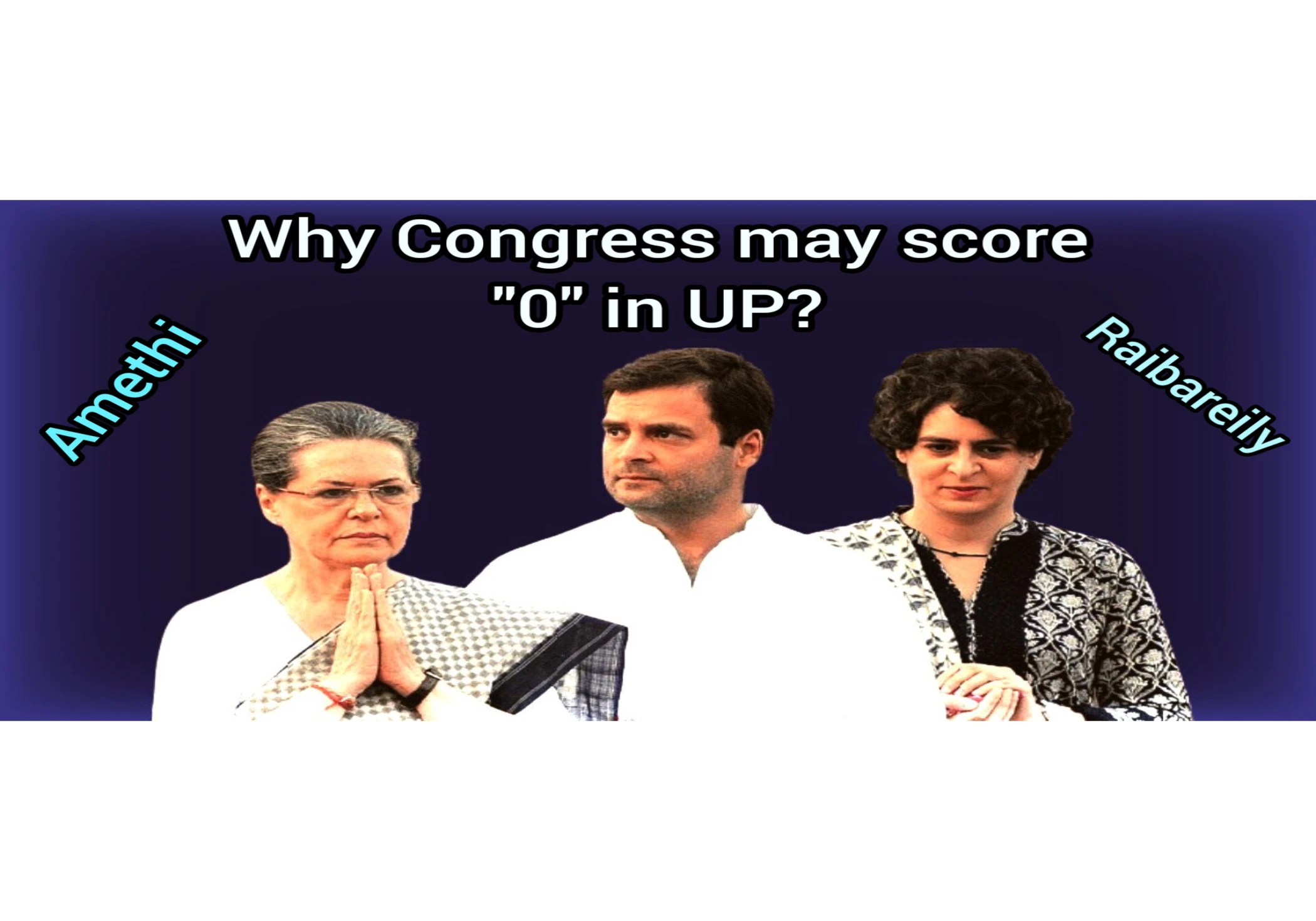
The recent ABP C-voter opinion poll provides projections that are not particularly surprising. According to their findings, the NDA led by Modi is anticipated to secure 295-335 seats in the 2024 Lok Sabha elections, while the Congress and its allies in the opposition may secure 165-205 seats. The survey highlights the NDA's comfortable lead in BJP-governed states such as Uttar Pradesh, Madhya Pradesh, Chhattisgarh, and Rajasthan.
It is noteworthy that the survey also mirrors the prevailing perception that the BJP is poised to dominate the states in the Hindi belt. It discloses that the BJP is engaged in direct competition with the Congress for approximately 200 seats in these states. The Congress organization exhibits considerable frailty in these regions, with recent defeats in assembly elections and emerging discord among its state leaders impeding the party's effectiveness. It appears that despite Rahul Gandhi's efforts with Bharat Jodo, he has been unsuccessful in maintaining unity within his party.
The Congress, content with its identity-in-making as the party of southern India, has overlooked addressing the challenges it faces in the northern regions. This narrative took root after victories in Karnataka and gained momentum following success in Telangana, where it triumphed over a regional party that had played a pivotal role in forming the state. However, the reality is that the Congress's stronghold in the south is not as formidable as the BJP's in the north, and likewise, the BJP's influence in the south is not as feeble as commonly believed.
Contrary to assumptions, the BJP demonstrated its strength in Telangana by securing 8 seats, adding 7 to its previous tally. The party maintained its vote percentage in Karnataka and, notably, incorporated JD(S) into the NDA. It is crucial to highlight that the Congress, in the assembly elections, managed to diminish JD(S)'s minority votes by 5%, ultimately adding to the Congress's overall tally in those elections. The BJP, under the leadership of Annamalai, is making strides in Tamil Nadu. But now the JS(S) joined the NDA which would consolidate Vokkaliga votes and nullify the 5% shift of votes. It was also seen that the BJP's vote percentage in the Karnataka assembly elections was intact.
According to the aforementioned surveys, the BJP is anticipated to secure 30 seats out of 130 in total across the southern states. This projection challenges the perception of the BJP's weakness in the south, highlighting its growing influence and strategic alliances that contribute to its electoral prospects.
The significance of winning Uttar Pradesh in the general elections is often underscored, given its substantial number of seats. In 2014, the BJP secured a commanding 73 seats, while the Congress managed only 2 seats in Raibareily and Amethi. In 2019, a strategic alliance between the SP and the BSP aimed to challenge the BJP's dominance by consolidating votes. The BJP secured 64 seats, the SP got 5, the BSP won 10 seats, but the Congress only managed to retain one seat, namely Raibareily. Notably, Smriti Irani defeated Rahul Gandhi in Amethi, a loss that Rahul had anticipated, prompting him to contest from two seats—Amethi and Wayanad in Kerala.
Rahul Gandhi's pessimism about reviving the party's fortunes in the North was evident when he stated that women are treated better in South India than in the North. This sentiment was aimed at appealing to the southern electorate while attempting to strengthen the party's position in the region. However, what Rahul failed to realize was that such statements not only aimed at praising the South but inadvertently implied the North's inferiority. This miscalculation had broader repercussions for the party in the North. This reflects a pattern where Rahul Gandhi's attempts to connect with the South ended up alienating the party in the North. His perception of the North as comparatively unfavorable has not only failed to resonate with the northern electorate but has also contributed to the party's struggles in the region.
The impending Lok Sabha elections are set for a plot twist as BSP Supremo Mayawati declares that the party will independently contest all seats. Meanwhile, Akhilesh Yadav expresses discontent with the Congress, branding it a cunning party. Although willing to form an alliance, Akhilesh is reluctant to accede to the Congress's seat demands. In 2014, the SP refrained from fielding candidates in Raibareily and Amethi, setting the stage for a direct contest between the Congress and the BJP. Former AAP leader Kumar Vishwas also contested from Amethi, though, being from an outsider party, the primary battle unfolded between the Congress, BJP, and the BSP.
In 2014, Rahul Gandhi won the Amethi seat by a margin of 1.07 lakh votes, a considerable decline from the 3.7 lakh margin in 2009. Despite losing, Smriti Irani, who garnered around 3 lakh votes, was appointed a cabinet minister and consistently worked in Amethi during Rahul's tenure as MP in 2014 and 2019. The decision to contest from Wayanad in 2019, as detailed earlier, raised questions about Rahul's commitment to Amethi.
Given Smriti Irani's increased influence and active role in Amethi, there seems little rationale for Rahul Gandhi to contest from the constituency again. Irani's impactful presence in Amethi, both as an MP and in the intervening years, challenges the conventional dynamics of the constituency and makes the upcoming elections in this region particularly intriguing.
Turning to Raebareli, speculations arise that Priyanka Gandhi might contest in the upcoming Lok Sabha elections, taking into consideration Sonia Gandhi's age. However, recent indicators present challenges for the Congress in the region. In the 2022 UP assembly elections, where Priyanka Gandhi assumed charge of the party, the Congress performed poorly, securing only 2 seats—marking the party's worst performance in the state.
The Congress's solitary win in Raebareli was attributed to the SP and BSP's decision not to field candidates, showing a gesture of mercy. However, with the likelihood of BSP fielding a candidate and potential tensions rising between the SP and the Congress, the circumstances are less favorable for the Congress to retain the seat in the upcoming elections.
Given the Congress's struggle to secure more than 3 percent of the votes in the highly populous state of Uttar Pradesh, the outlook for maintaining their last stronghold appears challenging. The adverse conditions, coupled with increased competition, make it difficult to envision the Congress replicating its past success in Raebareli, further highlighting the party's precarious position in the state.





